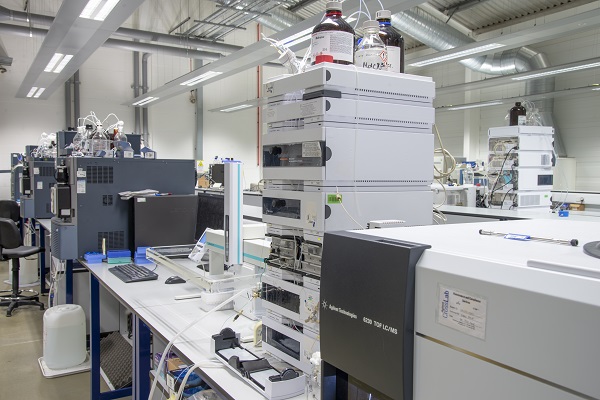The methodology employed involves extraction of total protein from meat, enzymatic digestion and analysis by mass spectrometry for peptide and species identification. Most of the proteins found in animals share high levels of similarity with other species, therefore to be able to distinguish between species the analysis must identify those fragments of protein sequences that are unique for a given species (marker peptides).

Visit our other sites
-
Fapas - Proficiency Testing
Globally recognised provider of proficiency tests, running over 400 tests annually across an extensive range of matrices and analytes
-
Great Crested Newts Testing
A single sample taken by an ecologist at any time during the newt breeding season can determine their presence or absence, saving you time and money
- Download our ebook on Multi-Species Proteomic Screening Tool for Meat Labelling - development and validation of a multi-species proteomics screening tool for meat species verification in processed meat products.
- Download ebook

Background to the work
Our research work has developed a validated multi-species proteomics screening tool for meat species verification in processed meat products. Incidents of food and drink mislabelling and fraud can damage public trust in the integrity of the food chain and impact on the competitiveness and resilience of UK businesses as demonstrated during the horse meat contamination incident of 2013. The development of robust analytical tools to help verify product labelling and support food law enforcement is fundamental to improving confidence in food labelling for consumers, businesses and the food industry.
The development of methods and technologies to detect food fraud supports Defra’s vision for a world leading food and drink industry with the highest standards of food safety and quality. Having these tools in place reassures consumer confidence and public trust in the integrity of the food chain. We have developed a multi-species screening tool that will increase the efficiency of meat analysis by facilitating the detection of unsuspected adulteration (currently limited to nine species). Traditional DNA-based methods tend to be applied in a species-targeted way (and so intelligence on the likely adulterants is needed). Additionally, in highly processed foods, DNA can become degraded, making interpretation of results difficult. Protein fragments (peptides) are more stable under harsh processing conditions and can be analysed by mass spectrometry (MS) for species determination. Proteomic MS approaches enable the simultaneous detection of multiple meat species and the detection of unsuspected meats in food. The application of proteomic MS technologies in food authenticity testing is an emerging innovation that offers potential advantages that complement DNA-based detection methods, currently the tool of choice for routine identification of meat species in food.
The method focuses on peptide analysis by liquid chromatography / tandem mass spectrometry (LC-MSMS), offering an advantage over DNA-based methods especially in highly processed products where DNA degradation might have occurred. In line with the current UK recommended action limit for meat species adulteration, the limit of detection for all species is ≤1% (weigh/weight) level. The method has successfully undergone intra-laboratory validation according to the Defra guidelines as well as an inter-laboratory trial.
Method Development & Optimisation

Take a Virtual Tour - Thomson Suite & MTU
Molecular Technology Unit (MTU)
Our diagnosticians are globally recognised for their expertise in diagnosing plant diseases and identification of plant pests. Our approach is to use the most appropriate method for diagnosing each sample ranging from traditional techniques, such as microscopy through to cutting edge molecular diagnostics.
Find out more about Plant Clinic & the MTU
The Thomson Suite - Mass Spectrometry
The Thomson Suite is one of the largest facilities of its kind in the UK. It is a bespoke laboratory running to GLP quality standards that houses 30 state-of-the-art mass spectrometry instruments. The equipment within the facility consists of very sensitive and selective instruments such as LC-MS/MS, IC-MS/MS and GC-MS/MS which are used for the make-up of compounds.
Find out more about our the Thomson Suite

Copyright © 2025 Fera Science Limited (“Fera”). All rights reserved.
For further information about how Fera uses any personal data collected from you, please see our Privacy Notice at www.fera.co.uk/privacy-policy.

